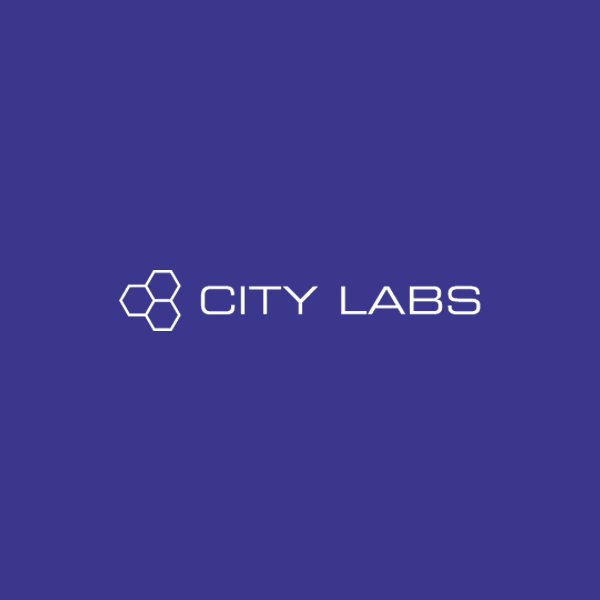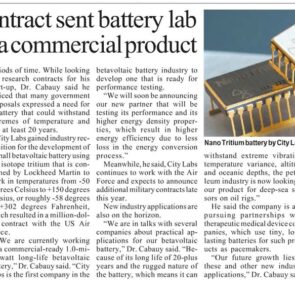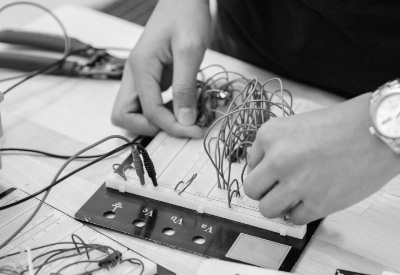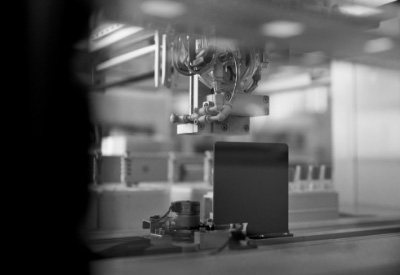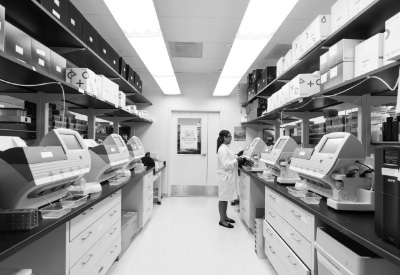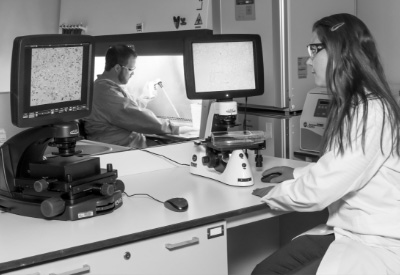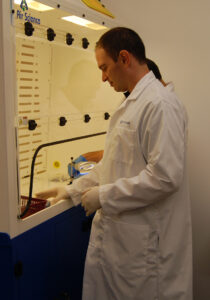
In the final months of 2010 and the first of 2011, City Labs moved into a new facility that includes laboratories and offices in Homestead, secured a regulatory license that allows consumers to use its tiny betavoltaic battery and brought in longtime consultant Larry Olsen as research director to its team of five.
The company’s roots trace back to 2003, when City Labs CEO Peter Cabauy founded the Office of Entrepreneurial Science at FIU.
“In the beginning we were looking for small business innovation research contracts,” he said. “Usually some government entity puts a request for proposals out and we found a common theme in a lot of these proposals where they needed a battery that could last up to 20 years and handle extreme temperature conditions.”
Mr. Cabauy’s background, a doctorate in applied physics, along with his business partner and Chief Technology Officer Denset Serralta, who’s worked nearly three decades in hardware and software design, seemed a perfect fit.
The idea for the battery City Labs is now selling to the military stemmed from a conversation Mr. Cabauy had with someone in the Navy where the use of radioisotopes came up.
With extensive funding from friends and family, he was able to use the isotope tritium, which had “been around since 1950s, but no one ever commercialized it,” Mr. Cabauy said.
They dedicated two years to getting the technology right – the final battery lasts up to 20 years and is confirmed by Lockheed Martin to work at temperatures ranging from negative 50 degrees Celsius to positive 150 degrees Celsius.
From 2008 to late 2010, the company worked on securing regulatory permission to both work with the radioactive isotopes in its labs and obtain a product regulatory general license that frees end-users from regulatory paperwork, eliminates the need for radiological training and allows for purchase without a prior radiation license.
Now it’s secured a facility in Homestead, has a first round of financing to build out a laboratory and expects to look for more sometime this year.
“Wow, we’re in the process of building batteries for the Air Force,” Mr. Cabauy said. And “we’re looking at the medical market.”
Going through the military is a valuable way for startup companies to get some capital, said Kevin Levy, a shareholder at the Gunster law firm who also specializes in technology, but not the only way.
“They always have lots of needs, from pencils and paper to satellite radar systems,” he said. “Technically they’re not investors, they’re just buying the product. “From the company’s perspective, getting the big contract early on” is an early investment, he added. Still, Mr. Cabauy said, City Labs relied on friends and family financing before it landed the first big contract and subsequent investments.
Now, he said, the company is scouting investors who not only have the patience and capital to help it grow but can also offer some kind of assistance.
“What we look for is that smart money, and by that I mean an investor who puts money into City Labs should also help us move the company forward.”

